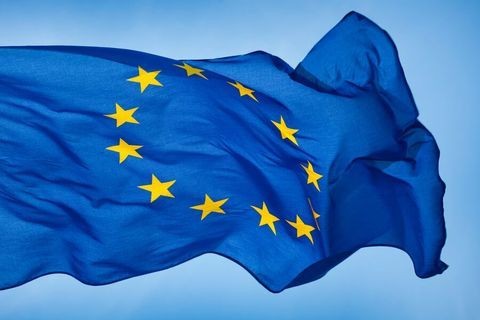Crowell & Moring and King’s College London 6th Annual Competition Law Conference
Client Alert | 11 min read | 06.20.24
Introduction
On Tuesday, June 11, 2024, Crowell & Moring (Crowell) and King's College London co-hosted their 6thannual Competition Law Conference at TheMerode in Brussels. The event featured a keynote address by David Lawrence, Policy Director at the Antitrust Division of the US Department of Justice (DOJ), and four panels of experts discussing the latest developments in competition law in the EU, UK and US. Key topics included the impact of AI and digital innovation, no-poach and non-compete provisions in the employment context, state aid and the Foreign Subsidies Regulation, and developments in merger enforcement. Distinguished speakers from the EU, UK and US, representing diverse perspectives from regulatory authorities, academia, and industry, shared their insights on these pressing issues.
Keynote Speech – David Lawrence
David Lawrence, Policy Director at the DOJ Antitrust Division, opened the conference with a keynote speech on the increasing convergence of antitrust and competition enforcement in the EU and the US in recent years. He highlighted five key areas where he sees the greatest convergence: (1) the definition of competition; (2) the approach to mergers that threaten to entrench dominance; (3) the analysis of mergers involving complementarities; (4) the dangers of monopsony power; and (5) the increasing use of a wide range of expertise and technologies in investigations and litigation.
Mr. Lawrence pointed out that although the objectives of competition law vary somewhat from jurisdiction to jurisdiction, each jurisdiction uses competition law enforcement to achieve these different objectives. As a result, the definition of "competition" has converged on what Lawrence defined as "the process of rivalry in which multiple competitors vie for business". Moreover, while price competition is important, Lawrence emphasized the growing awareness that other dimensions, such as innovation, are just as important. Similarly, the way countries assess dominance has changed and converged, and competition authorities around the world have taken a broader and more inclusive view of theories of the entrenchment of dominance. Non-horizontal mergers, having long flown under the radar, are coming under increasing scrutiny from multiple competition authorities. On this point, Lawrence concluded that "a price-focused approach to raising rivals' costs leaves too large a blind spot".
Regarding monopsony concerns, Mr. Lawrence pointed out that the revised 2023 DOJ/FTC Merger Guidelines in the US and evolving policy and practice in the US and elsewhere has resulted in increased attention to no-poach and non-compete agreements. Further, Mr. Lawrence explained that there has been increasing international convergence regarding the "instruments of trade" used to evaluate potential competition concerns. Technological advances have required competition authorities around the globe to evolve and adapt both in terms of assessing violations, such as pricing algorithms and the analysis of ephemeral messages, and in terms of working methods, where they can use AI or other tools to improve data collection.
To conclude, Mr. Lawrence highlighted the importance of international convergence in competition law, as it is the result of international dialogue and cooperation that ultimately helps countries to better enforce their laws and better serve their citizens.
The full speech has been published on the DOJ’s website and can be found here.
Panel 1 – Cooperation between Competitors in the Digital and Green Economy: Competition Risks of AI, Sustainability Agreements, No-Poach and Labor Agreements
Moderated by Alison Jones (Professor of Law, King’s College London), the panel included Thomas De Meese (Partner, Crowell), Lucilia Falsarella Pereira (Senior Director, Competition Enforcement, Competition and Markets Authority), Andreas Stephan (Professor of Competition Law, University of East Anglia) and Jason Murray (Partner, Crowell).
Several scenarios of algorithmic pricing were presented, highlighting their potential qualification as hub-and-spoke cartels or tacit collusion under Article 101 TFEU. It was emphasized that, in the EU and the UK, companies remain liable for the conduct of their own pricing algorithms. In the US, there have been notable developments in case law with regulatory and private antitrust actions targeting several industries, including healthcare, apartment rentals and hotel reservations. To date, however, the only US court to rule has held that the mere use by competitors of the same algorithmic pricing product or database is not, in and of itself, anticompetitive.
Regarding enforcement efforts, it was noted that AI can be instrumental for antitrust authorities in detecting collusive behavior. The importance of international cooperation between antitrust authorities in multi-jurisdictional cases was underlined. While there are clear efficiencies in the use of digital investigative tools, questions were raised as to whether the use of these tools by antitrust authorities, and the associated decrease in transparency, could potentially jeopardize procedural safeguards.
It was further discussed that antitrust authorities around the world are paying increasing attention to no-poach agreements in labor markets. No-poach agreements, which are often hidden from employees, can function as secret cartels by preventing employees from moving between companies without their knowledge. Also impacting labor markets, in the US, the Federal Trade Commission (FTC) has proposed a new rule to prohibit non-compete provisions in employment agreements nationwide, with exceptions for senior executives in policy making positions earning above a certain salary threshold. Meanwhile, the DOJ has faced challenges in court in no-poach cases, often losing cases based on per se theories and criminal liability. Nevertheless, civil litigation remains prevalent, particularly in the health care sector.
Sustainability is becoming an important competitive parameter in the EU and the UK, with the European Commission and national competition authorities showing an increasing willingness to look favorably at sustainability cooperation, as evidenced by their guidance, whether in policy papers or through individual cases. However, the European Commission's limited willingness to relax the rules, particularly regarding collective benefits, reflects a reluctance to blur the lines between competition and environmental policy. It was noted that there is also some divergence in the scope of guidance at EU and national levels. Despite these complexities, enforcement by national competition authorities shows more flexibility than the guidance might suggest. Nevertheless, companies need to stay cautious to avoid infringements of law, as seen in the German car emissions and French linoleum cartel cases. Meanwhile in the US, guidance on sustainability agreements remains limited, with competing legislative and enforcement priorities among various state enforcers and the US Congress. An increasing polarization and politicization of the subject further contributes to a situation that is exceedingly difficult to navigate for companies.
Panel 2: Developments in State Aid and (Foreign) Subsidies Control: how to Level the Playing Field in the New Geopolitical Environment?
Moderated by Karel Bourgeois (Partner, Crowell), the panel consisted of Andrea Usai (Case Handler, European Commission), Andreas Stephan (Professor of Competition Law, University of East Anglia), Nicole Robins (Partner, Oxera Consulting) and Quentin Azau (Global Competition Counsel, Umicore).
The panelists discussed the initial experience gained by the European Commission and companies with the Foreign Subsidies Regulation (FSR) since it became effective in October last year. Andrea Usai presented some updated figures (95 pre-notifications and 59 notifications with 52 cases having been closed in phase I) and stressed that for M&A transactions pre-notification was key to ensure a smooth review and that notifying parties needed to be prepared to respond to (sometimes extensive document) requests for information. From a practical and business perspective, it was pointed out that tracking financial contributions continued to constitute a huge challenge, particularly for large multinational companies.
The panel also considered the substantive test under the FSR. It was observed that the assessment of distortions and the balancing test differed from the compatibility test under EU State aid rules both from an economic perspective (i.e., a range of foreign subsidies and the possibility of a more detailed assessment) and from a theory of harm perspective. Regarding its enforceability, some panelists expressed concerns about whether effective access to foreign corporate and financial structures can (and will) be granted by third countries during FSR (ex officio) investigations. This may be particularly the case in countries/sectors where the FSR is perceived as a protectionist measure and where third countries may be inclined not to cooperate in an investigation.
Regarding possible unintended consequences of FSR enforcement, some panelists expressed concern about the consequences of foreign bidders withdrawing their bids in the face of an in-depth investigation by the Commission (e.g., the withdrawal of a bid of Chinese train manufacturer CRRC Qingdao Sifang Locomotive after the European Commission announced its first in-depth investigation). This (increased) risk of withdrawal of bids may have direct consequences for consumers, at least in the short term, through higher prices or supply shortages. A panelist also pointed to the risk of (imminent) retaliation measures by third countries in response to the FSR.
Considering the recent relaxation of EU State aid rules (e.g., through the adoption of the Temporary Crisis and Transition Framework), the panelists reflected on its potentially distortive effects. There was agreement that the relaxation of State aid rules has proven useful in furthering the green transition, industrial and other objectives. However, the panelists pointed towards a tension with maintaining a level playing field within the EU and globally. Member States with greater fiscal capacity can provide larger amounts of support, which could eventually result in a “race to subsidies". The panelists suggested that these distortions could be remedied by focusing more on State aid projects involving several EU Member States and ensuring that supported projects generate as many positive spill-over benefits as possible. Several panelists observed that the Temporary Crisis and Transition Framework should not be extended in time.
Panel 3: Merger Control Developments: Increased Scrutiny of Mergers, New US Guidelines, the Revised Market Definition Notice, International Convergence/Divergence
This panel was moderated by Peter Broadhurst (Partner, Crowell) and included Shawn Johnson (Partner, Crowell), Annemiek Wilpshaar (Head of Unit, DG Comp, European Commission), Vanessa Turner (Senior Adviser, BEUC – The European Consumer Organisation) and Jonathan Baker (Research Professor of Law, American University Washington College of Law).
The speakers discussed the reasons for the increased interest by competition authorities in merger review and enforcement. The panelists agreed that the European Commission’s approach has been increasingly focused on the consumer perspective. New theories of harm that have been or are being developed by the EU and US competition authorities were also discussed. In particular, the speakers touched upon the European Commission's focus on non-horizontal theories of harm relating to, among others, conglomerate issues, innovation, entrenchment and ecosystems. The US panelists confirmed that the US agencies have moved in a similar direction in these areas.
The panelists discussed the new US merger guidelines, highlighting the changes in the US agencies' position and commenting on whether the neo-Brandeisian approach would be a new way of thinking about antitrust. The speakers then turned to remedies, offering their views on whether increased enforcement was having an impact on the remedies that come with it. While the US agencies are moving away from consent decrees, the European Commission appears to take the approach that behavioral remedies may be better suited to deal with novel theories of harm, although some other authorities remain skeptical. It was also pointed out that a sector that had apparently been overlooked so far, but merited the authorities’ attention, was food production and processing. She explained that parts of the global value chain were in the hands of only a few companies which had been able to become so large, because, amongst other things, they acquired smaller companies without such transactions having been reviewed. She felt that from a consumer perspective this might become an area of focus for competition authorities.
The panel also discussed jurisdictional issues, with competition authorities seeking to assert broader jurisdiction over deals, as illustrated by the Illumina/Grail and Towercast cases. While the final judgment by the Court of Justice in Illumina/Grail is currently still outstanding (and the Advocate General having adopted an opinion not in favor of the European Commission’s view), it appeared that the European Commission – at least for now – continues to be positive of its approach concerning referrals via Article 22 of the EU Merger Regulation. While the desire to be able to review transactions that do not meet the traditional turnover thresholds will persist irrespective of judgment in Illumina/Grail, it was not immediately clear how such result could be achievable, should the European Commission be prevented from using Article 22. While helpful for the authority, the Towercast judgment would not provide for the same level of enforcement given, particularly, that it required a dominant position of the acquiring firm.
Panel 4: Fireside Chat: Future Direction on Enforcement with a focus on Digital, AI and the Practical Implications for Regulators and Companies
The fourth and final panel addressed several hot topics, including competition enforcement in a rapidly evolving technological landscape and the European Union's Digital Markets Acts (DMA). This discussion was moderated by Andrew Gavil (Senior Of Counsel, Crowell, Professor of Law, Howard University School of Law) and Bill Kovacic (Global Competition Professor of Law and Policy, George Washington University Law School) and included Sir Philip Lowe (Partner, Oxera Consulting) and Lucia Bonova (Head of Unit, DG Comp, European Commission).
The discussion revolved around the added value of the DMA, the achievements of the DMA and the difficulties – and some reluctance – of technology companies to comply with all the requirements of the DMA. The panelists highlighted the challenges for companies to have different compliance structures in different countries resulting from diverging enforcement approaches. To the extent that the DMA creates new requirements, companies would need different products in different markets. In addition, it was stressed that enforcement priorities will become clearer as use cases start to emerge. As this is a relatively new system and a "work in progress", more details of future practice will emerge over time. There were also some references to the different approaches taken by the UK with its recent Digital Markets, Competition and Consumers Bill and other jurisdictions around the world, and the suggestions that regulatory experimentation with different approaches may be a valuable exercise.
Some useful insights were provided on how the European Commission is currently dealing with the implementation of the DMA. Although the Commission is in the early stages of implementing the DMA, it is committed to full enforcement and is determined to make the DMA work. The panel also provided some insights into the interplay between DMA enforcement and general antitrust enforcement and cooperation with different national enforcement authorities. It was explained that the DMA had a different objective and toolbox than antitrust and that it focused only on a small selection of companies in specific markets. It was suggested that the DMA may provide gatekeepers with an opportunity to change their business models and innovate in ways they might not have done if the DMA would not require certain changes from them. More generally, while both the EU and the US competition regulators have acknowledged a need for more enforcement, their approach so far has differed. The EU seems to tackle new or complex problems via regulation, whereas the US focuses on its existing tools to try and make enforcement work.
We would like to thank Benjamin Geisel, Flavie Van Maldegem, Julie van Hevele, and Cyriel Danneels for their contribution in preparing this alert.
Contacts
Insights
Client Alert | 9 min read | 02.12.26
On 9 January 2026, the European Commission published its Guidelines on the application of Regulation (EU) 2022/2560, also known as the Foreign Subsidies Regulation (FSR).
Client Alert | 3 min read | 02.12.26
Client Alert | 2 min read | 02.12.26
Utilities and Data Centers Confront Congressional Scrutiny Over Rising Electricity Prices







